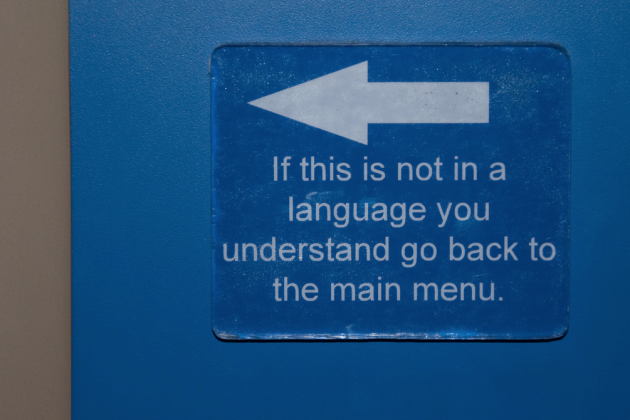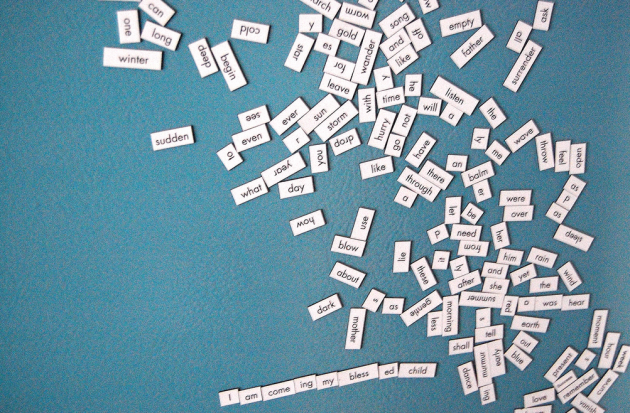How Well Do You Know Your Own Language?

Loren Sztajer/Flickr
People claim to know their mother tongues inside out, but do they? Do we just take our native statuses for granted?
Native speakers are considered to be an authority on their given language, but should that really be the case? Many people claim to know their first language inside and out, but we compare how familiar native speakers actually are with their mother tongues as opposed to non-native speakers.
What percentage of the language do people know in terms of words and how many people know the theory behind their languages?
A Native Speaker’s Vocabulary

Jon Fife/Flickr–The number of words a speaker knows can determine how well they know a language
Vocabulary is one of the most important aspects of communication. An average native English speaker has an active vocabulary of about 20,000 words. Considering that the Oxford English Dictionary contains 171,476 words, that might not seem like all that many. However, the reality of the matter is slightly more complicated, says the Reading Teachers Book of Lists, as cited by Lingholic.
The first 25 words a native English speaker learns are used in 33% of everyday language, the first 100 words are used in 50%, and the first 1,000 words are used in 89% of a person’s daily speech. As such, native English speakers have an extremely advanced and comprehensive grasp of the language, even if the sheer volume of words known pales in comparison to what is officially listed in the dictionary.
Knowing Your Language on a Deeper Level
Despite the large number of words that all speakers of any language store in their vocabularies, most do not know the history, theory or rules behind their native tongue. Because people grow up completely immersed in them, the semantics behind the words and phrases feels natural at a young age without any structured instruction.
According to theorist Noam Chomsky, children inherit the ability to learn any language. He also says that certain linguistic structures, which children use so accurately, are imprinted on a child’s mind early in life.
English Native Speakers and Grammar Rules
To address the reality that many native speakers never receive quality instruction regarding the finer points of their mother tongue, the Royal Order of Adjectives offers a set of complicated rules outlining the order in which adjectives are sequenced in speech and in writing.
Most English speakers naturally follow the Royal Order of Adjectives, despite the fact that they are largely unaware that this set of rules exists, according to Excelsior.
Native Speakers Retain their Language

Ken Banks/Flickr
As the rules of language are intuitive for native speakers, they are more likely to know their language inside out than foreigners who have studied and learned it. This is particularly true of language teachers, who need to study their language intensively in order to be able to give anything near proper instruction.
Consider foreigners who have mastered a language and even lived in a country where it is predominantly spoken. Even after long-term, complete immersion, it remains near impossible for a non-native speaker to catch when a word or phrase just does not “sound right,” a skill native speakers offer, even if they do not always know the exact reason why.
Language Mistakes Made by Non-Native Speakers
Founder of the Polyglot Conference, Richard Simcott once shared in an interview that he has never in his life met a language learner who can be totally mistaken as a native speaker, according to Fluent in 3 Months.
Similarly, the article ‘What makes a non-native English speaker sound foreign’, by Linguistics Stack Exchange claims that there are many ways in which a person’s speech can reveal that they are not a native speakers of English. These include:
- The misuse of phonemes
- Using the wrong syllable patterns
- Incorrect pronunciations
- Wrong intonation patterns
- Using the wrong choice of words
- Incorrect use of tense
Native vs. Non-Native Speakers as Teachers

Wonderlane/Flickr
Many people believe native speakers are the best teachers of their own language to students. They have a ‘natural feeling’ for the language and how to use it in different contexts, an awareness of cultural background, and native pronunciation.
According to Justin Murray, founder of the ESL blog Real Life English, other benefits of a native language teacher are that they will feel extremely comfortable using the language in a playful and dynamic way, which can do a lot to facilitate learning, and their repertoire of vocabulary and expressions will be much richer.
For Language Learners
To find a native speaking, qualified and experienced teacher in your area, contact Language Trainers to find the right instructor to help you meet your goals. If you are interested in testing your foreign language skills and see how good your current abilities are, check out Language Trainers’ selection of language level tests.
